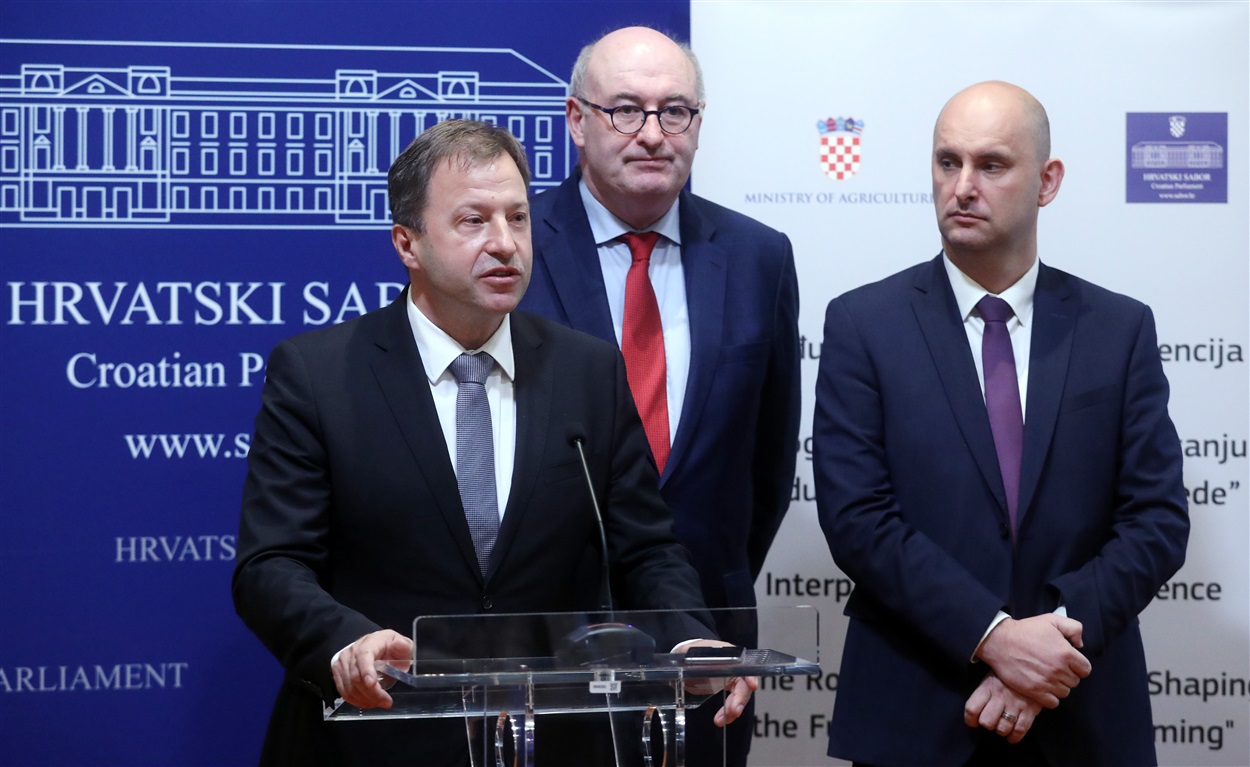
Zagreb - The second session of the two-day Interparliamentary Conference held in the Croatian Parliament on "The Role of Parliaments in the Future of Food and Farming" was dedicated to generational renewal.
The debate focused on the future measures for encouraging young farmers, among other things, not to leave the rural areas. It was emphasized that the small share of young people in the agricultural sector, who are bearers of innovations and new technologies, represented a major challenge for the competitiveness of European agriculture.
Speaking of young farmers, Chiara Dellapasqua of the European Commission said that only 5.1% of them were under 35, which she considers rather worrying. “This figure shows that, in the European Commission’s view, generational renewal is the CAP’s priority”, said Dellapasqua. She also stressed that Member States were invited to carry out an analysis of the state of land accessibility, loan availability and necessary knowledge in order to see what measures, instruments and tools could bring about generational renewal.
“Challenges facing farmers, such as incomes lagging behind other sectors, business risks that cannot be avoided, difficult access to land, poor creditworthiness and unfair trading practices are not a good invitation for young people”, said MEP Marijana Petir. Talking about figures in Croatian agriculture, she pointed out that the number of farmers under the age of 45 was 18 percent, while the average of the Union was 15 percent. “The number of farms in the Republic of Croatia before joining the EU amounted to about 230 thousand and we currently have about 160 thousand family farms”, she said. “Agriculture is not just a sector. It is a strategic sector important for the security of food supply for which we must ensure the transfer of knowledge and skills to young people”, concluded Petir.
Franc Breznik, Chairman of the Committee on Agriculture, Forestry and Food of the National Assembly of the Republic of Slovenia, spoke of Slovenian agriculture, in particular of the position of winemakers. He considers that the key to a more flexible framework for the future of young farmers is to support all their plans, from the modernization of production, investment in technology and equipment, raising business skills and empowering marketing knowledge to improvement of the quality of wine itself. “Simplified procedures should be provided, administrative constraints simplified and local specificities taken into account”, Breznik said.
Vice-President of the European Council of Young Farmers, Tomáš Ignác Fénix stressed the need to harmonize regulations for equal access to land in all Member States, to create a model of funding, to provide free agricultural advisory services, and to impose the obligation of payments of aid for young farmers, which is not present in all EU Member States. Fénix believes that due to different practices, corruption and conflicts of interest, it is necessary to ensure better control and oversight of direct payments in agriculture by an independent European body.